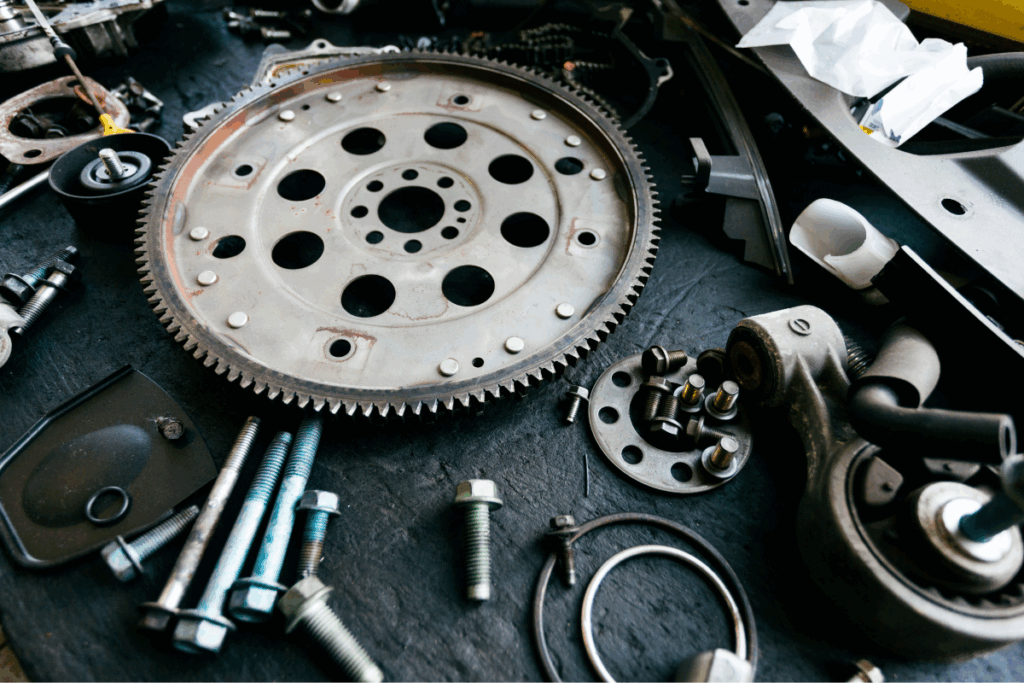Few automobile systems are subject to more scrutiny and higher expectations than the steering system. Along with the brakes, steering systems form a critical link between driver intention and mechanical execution, making any misalignment, substandard metallurgy, or variation in tolerances unacceptable.
That philosophy of design and fabrication excellence extends to every single part of the steering system, including knuckles, rack housings, yokes, tie rods, and power steering brackets. Everything must work seamlessly together with zero margin of error to ensure optimal performance and mitigate the risk of failure.
In this month’s blog, we uncover special considerations for fabricating steering components to help you understand the role precision machining plays in safe, reliable automotive steering applications.
Selecting The Proper Materials For Machinability And Performance In Steering Components
Choices between high-quality metals, cast iron, or aluminum alloys for steering components are based on how the material responds to post-machining processing, as well as its long-term load-bearing capabilities and fatigue resistance in the final application. For example, a steering knuckle must offer rigidity to maintain wheel alignment but must also absorb and dissipate shock loads without cracking or plastically deforming. Testing of these capabilities happens during production through processes such as heat treatment.
Experienced fabricators use data-driven approaches to predict how materials will respond to stresses during fabrication and finishing when making their materials recommendations. Doing so during the design phase helps eliminate risk areas and part failure during production, ensuring better quality and performance in the final application.
Using Stack-Up Tolerances To Achieve Excellence For Steering Components
Achieving tight tolerances is critical in most multi-component assemblies. However, steering components require parts that maintain consistent geometry under dynamic loads, extreme temperatures, thousands of operating cycles, and other real-world stresses. Stack-up tolerances help fabricators achieve these performance expectations in an environment where even a few micrometers of variation can alter preload, backlash, or responsiveness.
Stack-up tolerances are calculated by adding together the critical dimensions and tolerances of each component, using worst-case scenarios or statistical methods. The result helps engineers understand how variations in individual part dimensions affect the overall dimensions and performance of the final subassembly.
Achieving exact tolerances also demands advanced tooling strategies, such as multi-axis machining centers, in-process gauging, and adaptive control systems to maintain consistency across long production runs.
Surface Finishing Strategies For Exceptional Performance
Automotive manufacturers understand that surface finishes provide more than just visual appeal, extending to the proper mechanical functioning of steering components. This is especially true with steering components, which rely on ultra-smooth surfaces to minimize friction and wear that lead to subpar performance in the application. Examples include sliding interfaces between steering racks and bushings, as well as bore surfaces that house seals or O-rings.
Fabricators employ precision deburring, micro-finishing, and other techniques to prevent even the most minor deviations from occurring on the surface of the machined parts. In most cases, these techniques can be automated or validated in-machine to support high-production runs without sacrificing quality control.
Heavy-Duty Cleaning To Protect Mechanical Integrity
Cleanliness in precision machining means removing residual cutting fluid, particulate matter, and metal shavings from the part. Neglecting to do so on blind bores, thread roots, undercuts, and other areas in the component can cause havoc in steering systems, particularly those with power-assist or integrated sensor systems. The challenge lies in cleaning tiny areas using manual methods that can’t access tiny crevices.
Modern precision machining facilities utilize automated blow-off and solvent cleaning stations within their production cells to eliminate any contaminants that could compromise sealing, introduce wear, or reduce product life. This process is followed by particle count validation and cleanliness auditing. Automation technology ensures that all areas of the component are accessible and maintains consistency across large-volume production runs.
Read More: Cleanliness Requirements Of Precision-Machined Parts
Validating Hydraulic Integrity With Leak Testing
Hydraulic power steering components must remain fully sealed under operating pressure. Even a microscopic crack or porosity in a housing or fitting interface can trigger fluid loss, pressure drops, and, in extreme cases, catastrophic steering failure.
Leak testing is a standard part of the final stage of hydraulic component validation, helping to confirm the part’s integrity. Techniques vary depending on the part, but can include pressure decay, vacuum decay, helium mass spectrometry, or underwater air methods. Modern production facilities build leak testing directly into the production cells, using highly sensitive leak detection technology to validate or reject the part.
Read More: Leak Testing Options In Precision Machining
Confirming Design Conformity With Touchless Scanning Of Steering Components
The critical role that steering components play in the safe operation of a vehicle demands no deviation from the original design. Touchless scanning is among the most accurate technologies to ensure that the design specifications are completely adhered to.
This technique scans the entire structure of the part, capturing every surface, edge, and contour without physical contact, thereby eliminating the potential for part deformation or damage during inspection. With touchless scanning, parts that have traditionally been difficult to probe, such as curved flanges, compound surfaces, or undercuts within assemblies, can now be verified before proceeding in production.
Access Top-Quality Precision Machine Solutions With The Team At Kenona
The engineering experts at Kenona Industries, a division of Arrow Automotive, employ the latest technology to ensure our automotive parts and equipment, including steering systems, are built to last under extreme conditions.
As a leading automotive components supplier, we’ll work closely with your R&D team to ensure you get the best results for your precision machine projects every time. Get in touch with us when you’re ready to build!
Contact Kenona Industries For A Quote On Your Next Design And Fabrication Project
Kenona Industries, a division of Arrow Automotive is a world-class supplier of automotive components to leading OEMs and Tier 1, 2, and 3 manufacturers. Discover what sets us apart by requesting a quote for your next project today!
